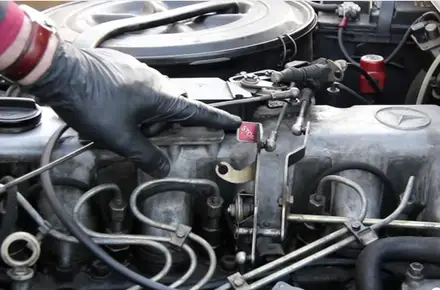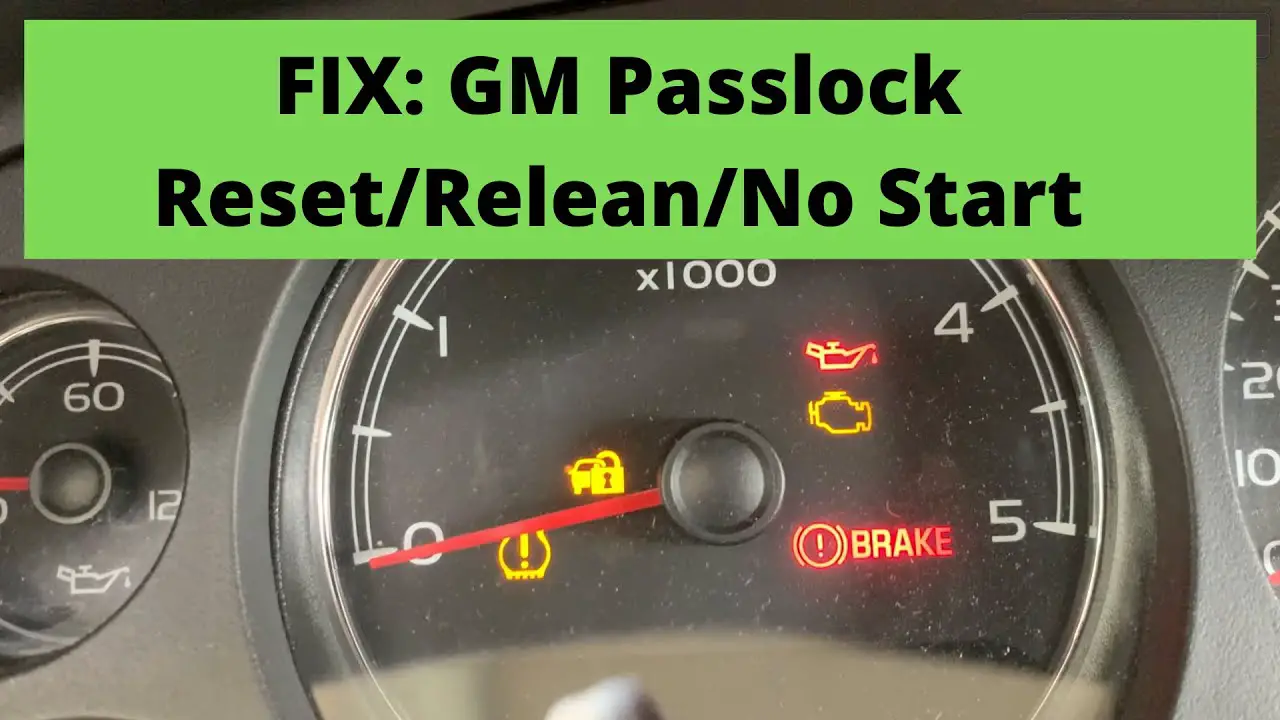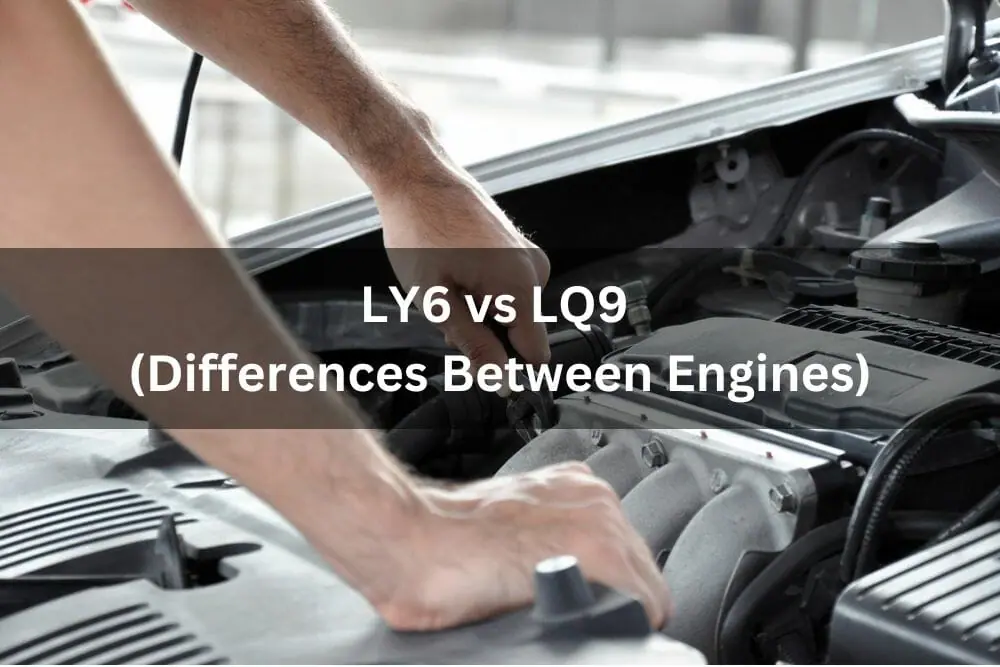Ever wondered why your diesel engine unexpectedly stops running? This article cuts to the chase to answer the question: “What Causes a Diesel Engine to Stop Running?” We’ll unravel the key factors, whether it’s fuel-related issues or mechanical hiccups.
Our goal is to provide a straightforward understanding, offering insights for troubleshooting and preventing these interruptions.
Join us as we simplify the intricacies of diesel engines, giving you clear insights into why your engine might suddenly come to a halt.
What Causes a Diesel Engine Stop Running?
Understanding the reasons behind a diesel engine suddenly ceasing to run can be a challenging task. Many car owners often resort to taking their vehicles to a nearby maintenance station for a thorough examination of the engine.
However, with the insights provided below, you can now diagnose potential issues yourself, regardless of your location. Equipped with a handy repair kit, you may find solace, especially in critical situations such as being stranded on a highway.
-
Damaged Diesel Injectors
Diesel engine issues often stem from damaged injectors, commonly failing due to back leakage or overflow. The primary culprits are faulty car components that contribute to overflow and backflow, diminishing rail pressure and subsequently halting the engine.
Beyond this, these worn components can impede the functionality of diesel injectors, leading to low RPM or a complete engine shutdown.
The intricate interplay of these factors underscores the importance of addressing damaged injectors promptly, as they not only compromise performance but can trigger a cascade of complications throughout the engine system.
Recognizing the pivotal role injectors play in engine function is crucial for maintaining optimal performance and avoiding disruptions in the diesel engine’s operation.
Also Read: How Do I Perform A Buick Key Fob Battery Replacement?
-
Faulty High-Pressure Pump
A faulty high-pressure pump stands as the second prominent cause behind a diesel engine’s shutdown.
When the fuel pump malfunctions, it induces low pressure within the system. Complicating matters further, a cracked fuel pump can introduce various iron filings into the system, exacerbating the problem by compromising injectors responsible for fuel injection and, consequently, initiating the engine.
The intricate relationship between the high-pressure pump and the overall system underscores the critical role this component plays in maintaining engine functionality. Timely identification and rectification of issues with the high-pressure pump are imperative for preserving the integrity of the diesel engine, preventing a domino effect of damage that could extend to vital components like injectors, and ensuring sustained and reliable operation.
-
Insufficient Air-Fuel Supply
Insufficient air-fuel supply emerges as the third culprit in causing a diesel engine to come to a halt. The problem is distinctly highlighted by the inadequacy of both fuel and air, presenting a clear impediment to engine operation.
Any crack or bend in the supply line exacerbates the situation, creating a vacuum that can block the car’s fuel tank. As a consequence, fuel is forced to retreat to the reservoir, obstructing the crucial combustion process. This interruption in the supply chain underscores the delicate balance required for efficient engine function.
Addressing issues related to air-fuel supply, particularly disruptions in the supply line, becomes pivotal in maintaining the continuous and smooth operation of the diesel engine, ensuring optimal performance and preventing potential breakdowns.
-
Blocked Filters
The fourth factor contributing to a diesel engine’s cessation is blocked filters. As air enters the system, filters are strategically placed to prevent external dirt from compromising the engine’s integrity.
Nevertheless, if these air filters are neglected and not cleaned or replaced in a timely manner, the consequence is a hindrance to the inflow of sufficient air into the system for effective fuel combustion.
Proper maintenance of these filters is crucial for sustaining optimal engine performance. Should your vehicle exhibit proper functionality in all the aforementioned aspects, it becomes imperative to delve deeper into additional factors that might lead to the engine’s stoppage.
This proactive approach enables car owners to identify and address potential issues promptly, ensuring the continuous and reliable operation of their diesel engines.
-
Damaged Relay

The fifth factor contributing to a diesel engine’s shutdown is a damaged relay. A faulty relay disrupts the generation of sufficient heat necessary for the combustion cycle in the car.
Given its dependence on glow plugs, the relay must function effectively in tandem with its counterpart to facilitate the initiation of the diesel engine.
Consequently, a damaged relay stands as a significant reason behind a diesel engine coming to a halt. Recognizing the pivotal role of the relay in the ignition process emphasizes the importance of promptly addressing any issues related to its functionality.
Car owners should be vigilant about the condition of the relay to ensure the continuous and efficient operation of their diesel engines, averting potential disruptions in the combustion cycle.
-
Flat Battery
The sixth factor causing a diesel engine to cease operation is a flat battery. Particularly in cold weather or when the battery is drained, the fuel pump encounters challenges in generating ample pressure.
Consequently, the engine faces difficulty starting due to the inefficiency of fuel injection. The battery’s pivotal role in providing the necessary power to various components, including the fuel pump, underscores its significance in the overall functionality of the diesel engine.
A depleted or inadequately charged battery not only hampers the fuel pump’s ability to maintain the required pressure but also impedes the initiation of the engine.
Recognizing the impact of a flat battery on engine performance highlights the importance of regular battery maintenance to ensure the sustained and reliable operation of the diesel engine, especially during adverse weather conditions.
-
Faulty Compression
A significant factor leading to a diesel engine’s stoppage is faulty compression. Diminished engine compression directly interferes with heat generation, impeding the fuel ignition process and resulting in challenges when starting the engine.
To pinpoint and address compression-related issues, a diesel engine compression test proves invaluable. By conducting this test, one can gauge the compression reading, and if it falls below the recommended range of 20-35 bars or 300-500 PSI, it signals potential problems.
Recognizing the pivotal role compression plays in the ignition process emphasizes the need for timely diagnostics and corrective measures to ensure optimal engine performance.
Addressing compression issues promptly is vital in maintaining a diesel engine’s functionality, as it directly influences the overall efficiency and reliability of the engine during ignition and operation.
-
Bad Fuel Filter
A key contributor to a halted diesel engine is a bad fuel filter. When the fuel cap in the tank is contaminated, it obstructs air from pressurizing the tank, causing the vehicle to choke and stall due to inadequate air pressure.
Addressing this issue requires a thorough inspection and cleaning of the filler cap’s inner rim. Ensuring the cleanliness of the fuel cap is crucial for maintaining the necessary air pressure within the tank, preventing disruptions in the engine’s operation.
The significance of this component lies in its role in sustaining the optimal fuel-air mixture essential for combustion. Proactive measures, such as routine inspection and cleaning, can effectively mitigate the risk of a bad fuel filter causing interruptions in the air pressure supply, ultimately safeguarding the continuous and smooth operation of the diesel engine.
-
Running Out of Fuel
A fundamental but pivotal cause for an engine’s cessation is fuel depletion. Regularly monitoring the fuel tank and replenishing it as required is essential to avert this issue.
In the event of running out of fuel, promptly refilling at a service station or seeking assistance becomes imperative. This straightforward yet critical aspect of fuel management underscores the importance of maintaining an adequate fuel level to sustain engine operation.
By adhering to a routine fuel-checking regimen and proactively refilling when necessary, drivers can avoid the inconvenience and potential risks associated with running out of fuel.
Timely intervention in cases of fuel depletion ensures the continuous functionality of the engine, preventing unexpected halts and facilitating a smooth and uninterrupted driving experience.
What Is Diesel Engine Runaway and How Can It Be Prevented?

Diesel engines face a grave concern beyond the common issue of simply stopping; this menacing problem is known as diesel engine runaway. This rare and serious condition can significantly impact diesel engines, leading to catastrophic consequences. In the event of a diesel engine runaway, the engine draws excess fuel from an unintended source, accelerating at higher and higher RPM, ultimately producing output levels up to 10 times the engine’s rated capacity. This destructive process continues until the engine succumbs to mechanical failure or bearing seizure due to insufficient lubrication.
The Terrifying Scenario Unveiled
Imagine the horror of a runaway diesel engine – an uncontrollable roar, thick smoke billowing from every crevice, and RPM soaring to dangerous levels. The spectacle, reminiscent of a nightmarish scenario, culminates in the engine coming to a sudden and chilling halt, sending shivers down the spine of anyone witnessing this surreal event.
Fears of Diesel Owners
For diesel vehicle owners, the prospect of a runaway diesel engine is a nightmare they wish to avoid at all costs. The fear is justified, given the potential consequences of such a rare event. Preventative measures become paramount, as diesel owners strive to safeguard their vehicles from the looming threat of engine runaway. Understanding the intricacies of this phenomenon is crucial in developing effective strategies to prevent its occurrence and ensure the continued reliability and safety of diesel engines.
FAQs: What Causes a Diesel Engine to Stop Running?
What causes a diesel engine to cut off while driving?
Possible causes include issues with the fuel system, air intake problems, electrical malfunctions, or mechanical failures. It’s essential to investigate fuel quality, check for clogged filters, and inspect critical engine components.
What stops a diesel engine from running?
Diesel engines may cease operation due to fuel supply interruptions, mechanical failures (such as a seized bearing), electrical system malfunctions, or problems with the air and exhaust systems.
Why does my diesel engine run then cut out?
This can result from issues with fuel delivery, injector problems, air intake blockages, or electrical faults. Diagnosing the specific cause requires a comprehensive examination of the fuel and electrical systems.
What causes a diesel engine to suddenly lose power?
Power loss may be attributed to fuel system problems, injector issues, turbocharger malfunctions, or problems within the air and exhaust systems. A thorough examination is needed to identify and address the root cause.
What are the symptoms of diesel pump failure?
Symptoms may include difficulty starting, decreased engine performance, increased fuel consumption, and irregular engine idling. A failing diesel pump requires prompt attention to prevent further damage.
How do you clean diesel injectors?
Diesel injectors can be cleaned using specialized injector cleaner additives, professional cleaning services, or ultrasonic cleaning machines. Regular maintenance helps prevent injector clogging and ensures optimal fuel atomization.
What causes a car to cut off while idling?
Idling issues may stem from a clogged fuel filter, faulty injectors, air intake obstructions, or problems with the engine control module. Diagnosing and addressing these issues is crucial for stable idling.
What are the symptoms of a clogged fuel filter?
Symptoms include poor engine performance, difficulty starting, decreased fuel efficiency, and engine misfires. Regularly monitoring and replacing the fuel filter prevent these issues.
How do you know if a diesel engine is good?
A good diesel engine should start smoothly, operate quietly, deliver consistent power, and exhibit minimal smoke during operation. Regular maintenance, including oil and filter changes, ensures engine longevity.
How do I know if my fuel filter is clogged diesel?
Signs of a clogged fuel filter include power loss, engine hesitation, and difficulty starting. Routine inspection and replacement according to the manufacturer’s recommendations are vital for optimal performance.
How do you know if your diesel air filter is clogged?
A clogged air filter may cause reduced engine power, increased fuel consumption, and black smoke from the exhaust. Regular checks and timely replacement maintain proper airflow to the engine.
How often should you change your fuel filter in a diesel?
Generally, changing the fuel filter every 10,000 to 15,000 miles or as recommended by the vehicle manufacturer is advisable. However, factors like fuel quality and driving conditions may influence the frequency.
Conclusion
The factors discussed above represent the diverse array of issues that can lead to a diesel engine coming to a halt. It is crucial to meticulously inspect each potential cause, ensuring a comprehensive understanding.
Armed with this knowledge, proactive measures can be implemented to circumvent diesel engine stalling, preventing potential troubles.
By embracing precautionary steps tailored to address the identified causes, diesel owners can safeguard the continuous and reliable operation of their engines, mitigating the risks associated with unexpected shutdowns.
Stay vigilant, conduct regular maintenance, and respond promptly to any signs of trouble to enjoy a smoother and more trouble-free diesel engine experience.




